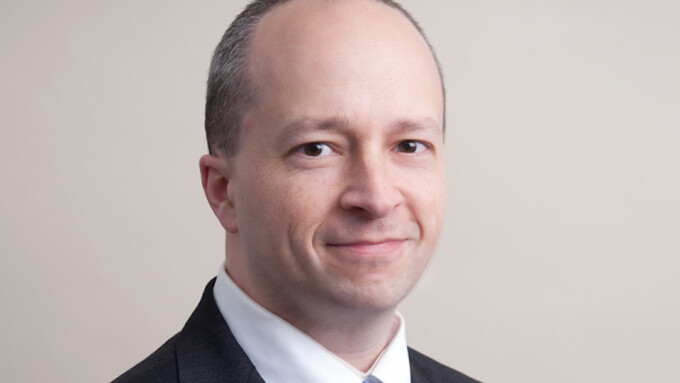NEW YORK — The New York Times published an op-ed today by conservative pundit Yuval Levin advocating for state intervention “with real teeth” in overseeing minors’ social media use, and sensationally labeling “pornography” as “a vast, dehumanizing scourge that our society has inexplicably decided to pretend it can do nothing about.”
Levin’s piece does not offer any indication of how he differentiates, or how tougher laws might differentiate, between what he calls pornography and other kinds of sexual expression, such as art or educational materials.
The New York Times op-ed comes a few days into a revived media panic around online sexual content in the U.S., highlighted by an appearance on CNBC by billionaire investor Bill Ackman and religiously inspired anti-porn crusader Laila Mickelwait, pressuring Visa into discontinuing payment processing for an adult industry ad network. Yesterday Visa acceded to the demand.
Levin, a contributing writer to the Times' Opinion section, is the editor of the conservative publication “National Affairs” and director of social, cultural and constitutional studies at the American Enterprise Institute, a think tank that promotes the ideas of noted right-wing authors such as Newt Gingrich, Dinesh D’Souza and Robert Bork.
In the piece, Levin opposes minors' access to platforms like Instagram and TikTok, and asserts that “it was a mistake to let kids and teens onto the platforms in the first place.”
He proposes that Congress intervene by “raising the Children’s Online Privacy Protection Act’s minimum age from 13 to 18 (with an option for parents to verifiably approve an exemption for their kids as the law already permits), and by providing for effective age verification and meaningful penalties for the platforms.”
He then goes on to declare that “real age verification would also make it possible to more effectively restrict access to online pornography — a vast, dehumanizing scourge that our society has inexplicably decided to pretend it can do nothing about,” adding that “concerns about free speech, whatever their merits, surely don’t apply to children.”
In fact, the First Amendment does not limit free speech rights according to age.








